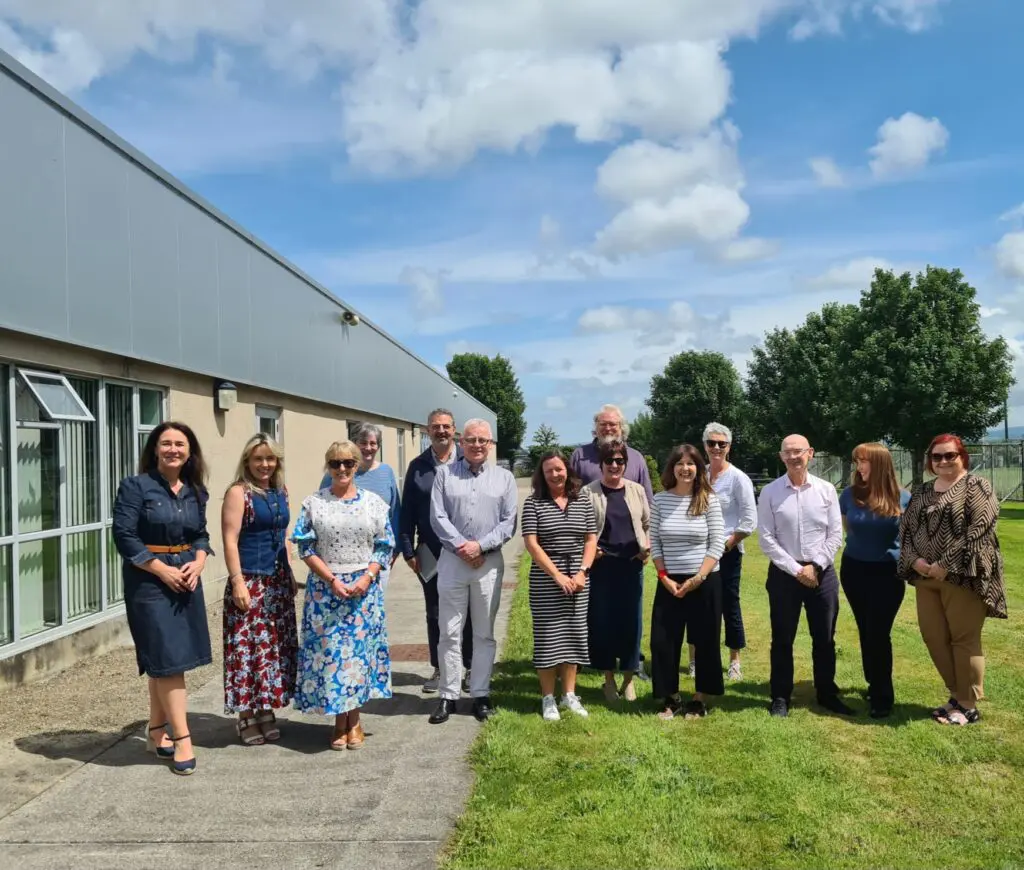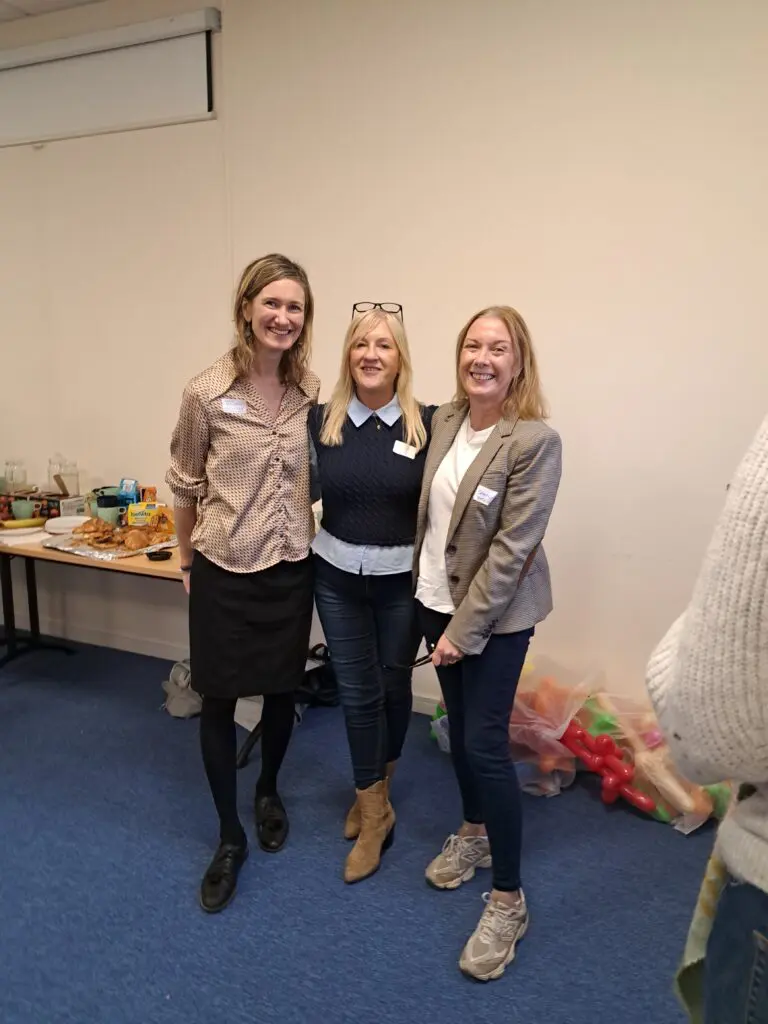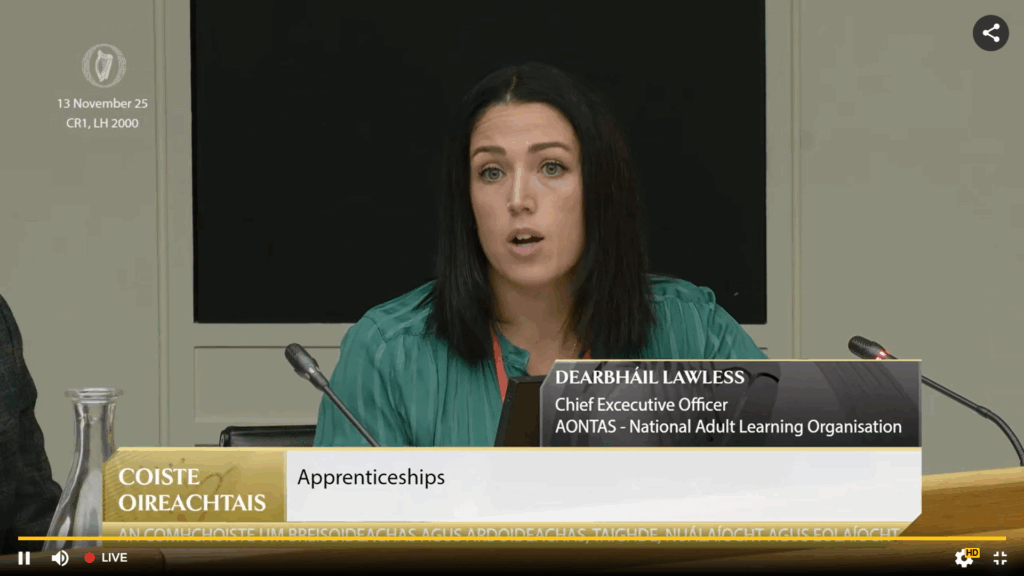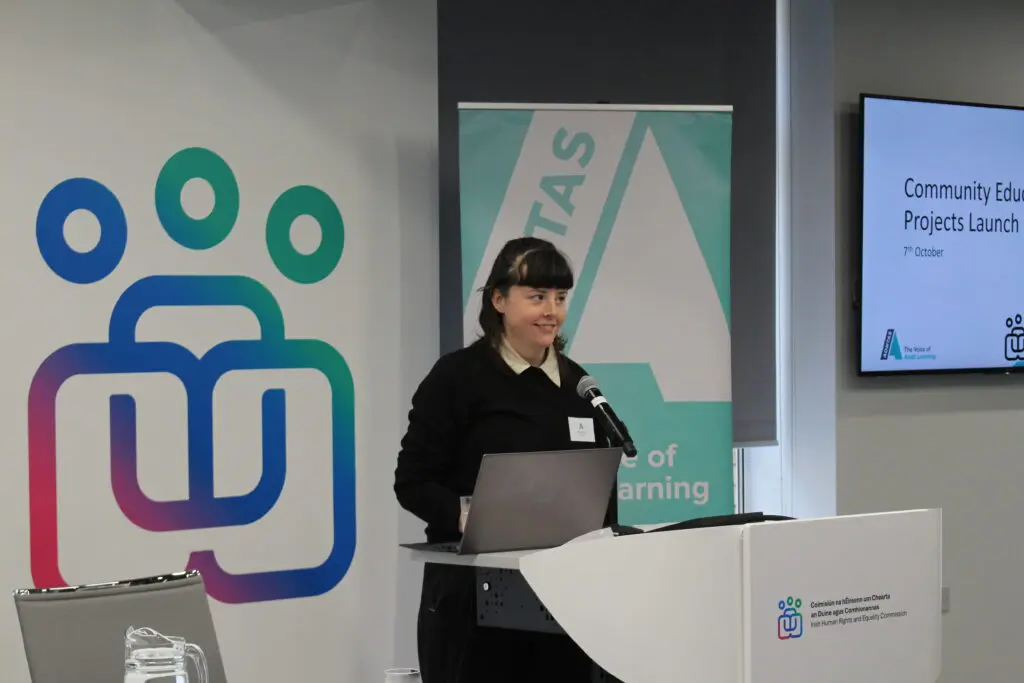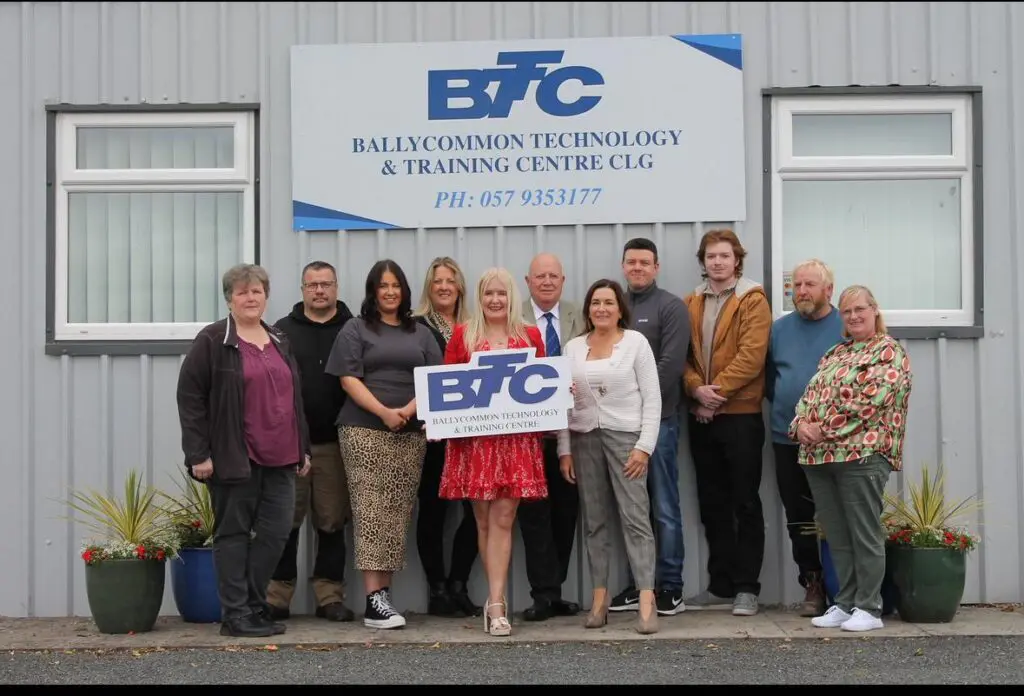Speaking last week at a study visit that welcomed European colleagues in the adult learning sector to Dublin, Mary Maher, Head of the Dublin Adult Learning Centre (DALC) said that “we need to support communities coming together and integrating to support learning.
Using a social practice model—an approach that looks at common practices in society—DALC tutors and learners explore how reading and writing are part of daily life and how being able to use and practice these skills impact upon accessing different services, such as the post-office or filling out forms, as well as how not having these skills excludes individuals from being fully involved in society. From this model, DALC tutors promote Learner Voice, where the learner’s experience and perspective is central to how learning is structured and practiced. They also promote respect and an openness to ideas.
Mary Maher shared that “people have rich, vast experiences that are so important to bring into learning.” The majority of learners at DALC are adults between the ages of 45 and 64, who are working to improve their reading or writing skills. Also, at DALC are international learners between the ages of 25 to 44, who are participating in English for Speakers of Other Languages courses.
 Recruiting Learners
Recruiting Learners
Our visiting European colleagues are all part of the RegALE Network, which is a skills-building project funded through Erasmus+. The project looks to help those in the adult learning sector to strengthen their skills and networks so as to create better structures and policies that help learners.
Our European colleagues were interested in learning about how DALC recruit learners, and Mary Maher reported that word of mouth is their strongest tool for engaging with the local community.
DALC also encourages their learners to share their learning journey and information about their courses on their social media outlets, letting the learners speak for themselves about the value of the courses.
Another recruitment tool is collaboration with different community organisations. Social welfare officers are encouraged by community education groups to refer individuals to adult education centres like DALC. Mary discussed how integrating these services could provide increased support for vulnerable learners.
“The people we work with don’t typically think they need us. But then when they do work with us, they become lifelong learners. Sometimes it just takes someone asking them, why don’t you go back to learning?” – Mary Maher
She suggested that social welfare officers are well placed to do that.
And there are many other adult learning centres close to DALC in Dublin city. Together, they have hosted a Learning Trail where adult learners get to see different learning opportunities in neighbouring centres while meeting fellow learners in the local community.
DALC also recruit learners simply through signs outside of the centre, as well as hosting open days for adults to come in and learn about available courses.
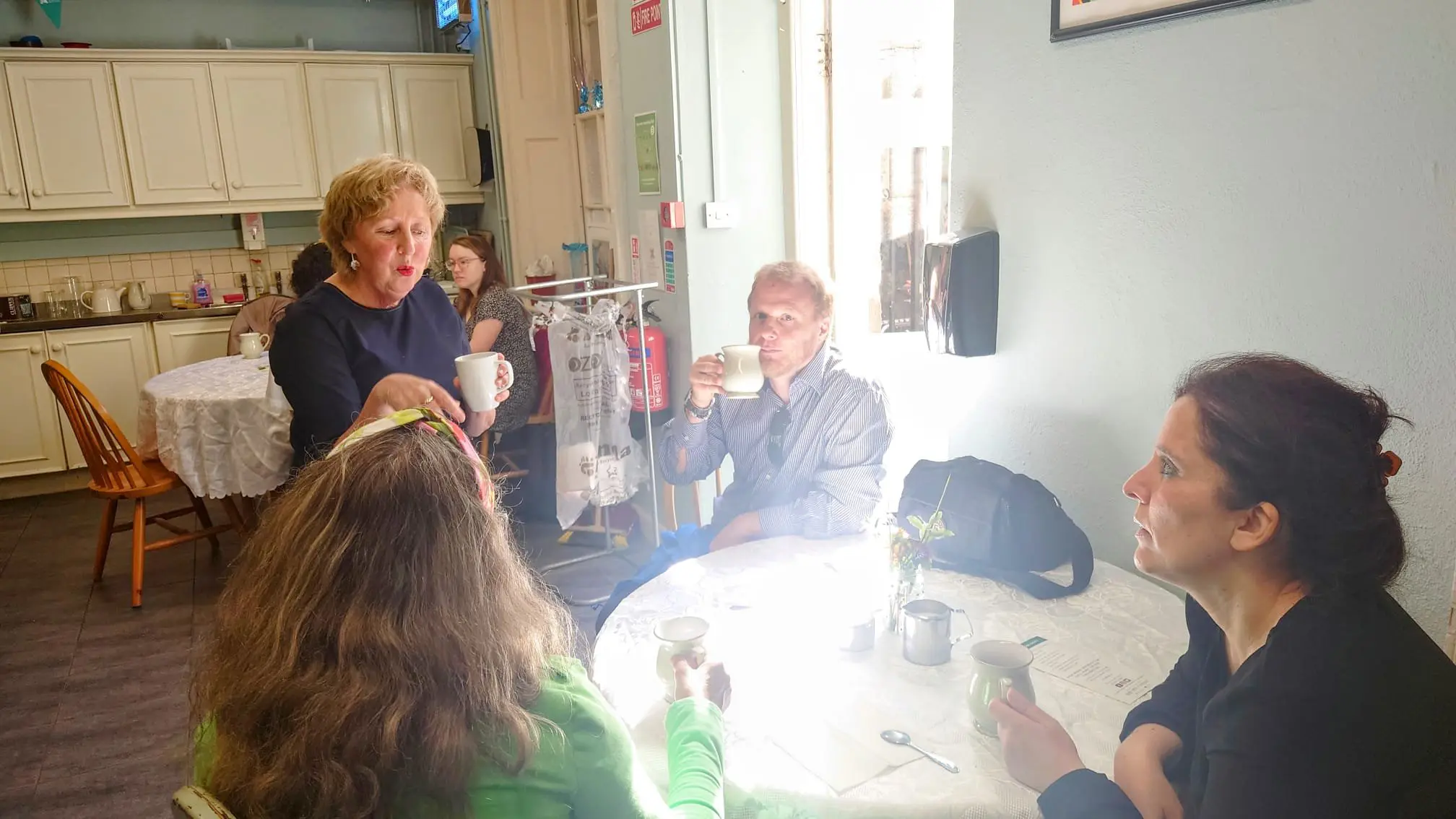 Learner experiences at DALC
Learner experiences at DALC
At the event, learners discussed how coming back to education helped them go down a healthier path in their lives. Getting through the door of a community education centre can be a significant challenge for a new learner. Providing wraparound supports that help remove barriers to learning, such as childcare or one-on-one meetings, can make a learner’s return to education easier.
Learners reported that participating in courses at DALC gave them the space to gain skills, which built up their confidence and independence to live their life in Dublin and integrate in the community, such as learning to read, or to use a smartphone.
“I wouldn’t go in and buy a birthday card because I couldn’t read it, but now I can. It gives me a lot of confidence to be able to do that now” – DALC Learner
“It makes a big difference in life when you can do things for yourself” – DALC Learner
According to Mary Maher, it is important to set an appropriate pace to facilitate the best learning environment for the learners. Learners felt that building literacy, writing, and maths skills takes time, and they appreciate the pace of learning at DALC.
Some of the learners said they have been attending courses at DALC for years. They come to meet other learners, be a part of a community, and grow at their own pace. One learner who is a marathon runner shared that “learning to read was a marathon, not a sprint.” The canteen in DALC is a space for learners to connect, relax, and share their experiences outside of the classroom over a cup of tea. Decorated with artwork made by learners and a cosy outdoor area, Mary shared that “learners come for the class but stay for the tea.”
International learners highlighted how DALC is one of few places they come to practice their English, outside their communities. During the English-speaking classes, the learning comes from one another. The class structure is set up so that learners work in pairs. This way, course participants can learn from each other’s accents and different paces of speaking in an immersive setting.
“I thought when I came back in here it would be like school where you’d get a hard time. But it was so different, you weren’t given a hard time. When I met the tutors, I realised how different it is” – DALC Learner
Learner-Led Curriculums
Tutors at DALC focus on encouraging learners’ attendance rather than pushing learners to progress through the education system. The curriculum is student-centred, based on what they want to learn and what’s important in their lives.
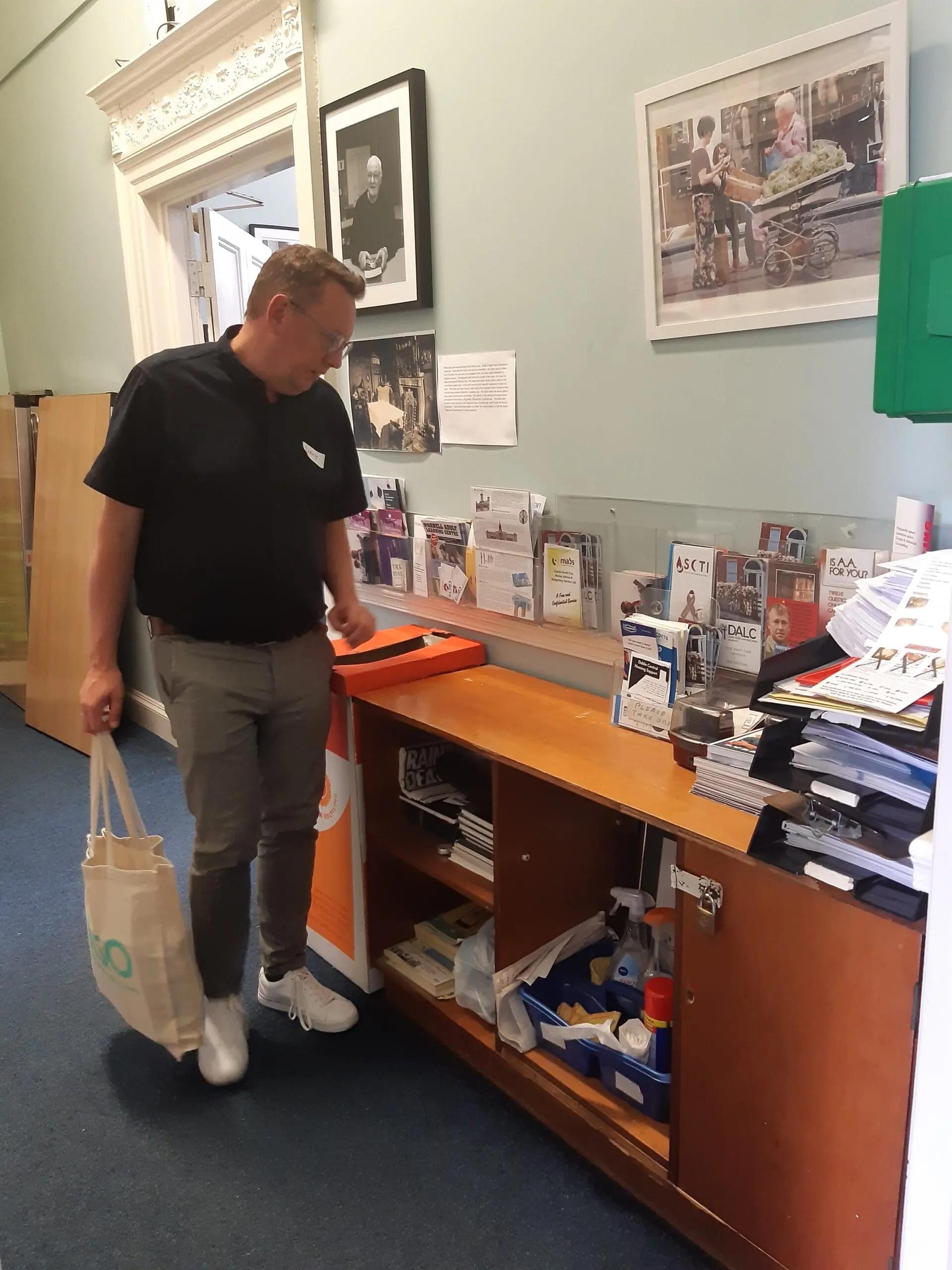 One of our EU colleagues, Tina from the European Association for the Education of Adults (EAEA), who was part of the visit to DALC, stated that “learning should be about the joy of it. It is great to see a centre that supports this idea.”
One of our EU colleagues, Tina from the European Association for the Education of Adults (EAEA), who was part of the visit to DALC, stated that “learning should be about the joy of it. It is great to see a centre that supports this idea.”
However, many adults engaging with DALC have inconsistent attendance, as well as varying childcare needs. While childcare services are offered at DALC, they are limited to providing care for those whose children regularly attend the onsite creche.
Learners may not finish their course due to many barriers, including living in emergency accommodation centres, struggling with substance misuse, or belonging to a transient community.
According to Mary Maher, increased funding for expanding support services, like the onsite creche, may help to increase learner retention.
Learn more about courses on offer at DALC by clicking here.
Click here for more on the RegALE Network.
For more information, contact Ecem Akarca, EU Projects Officer at: eakarca@aontas.com
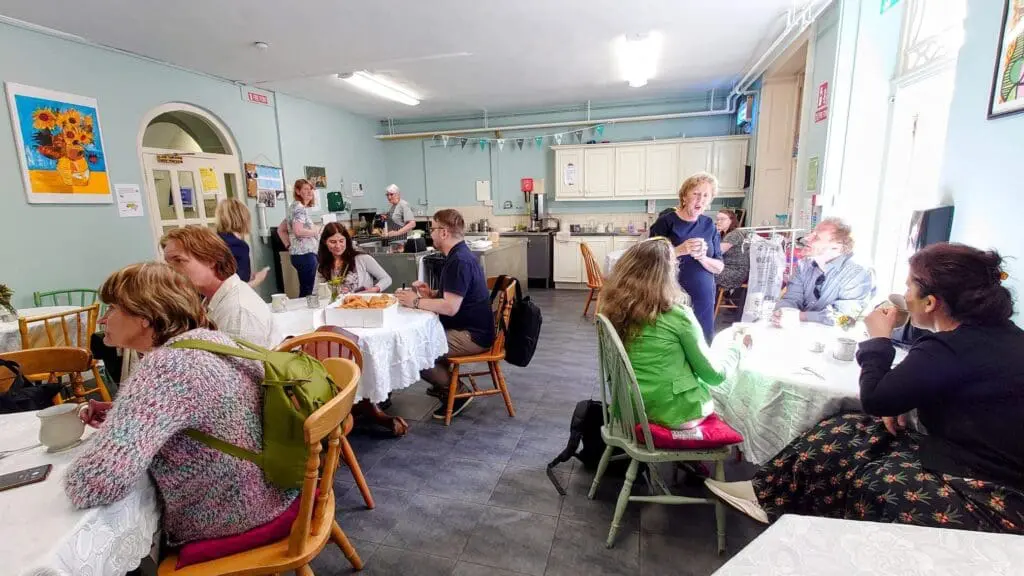
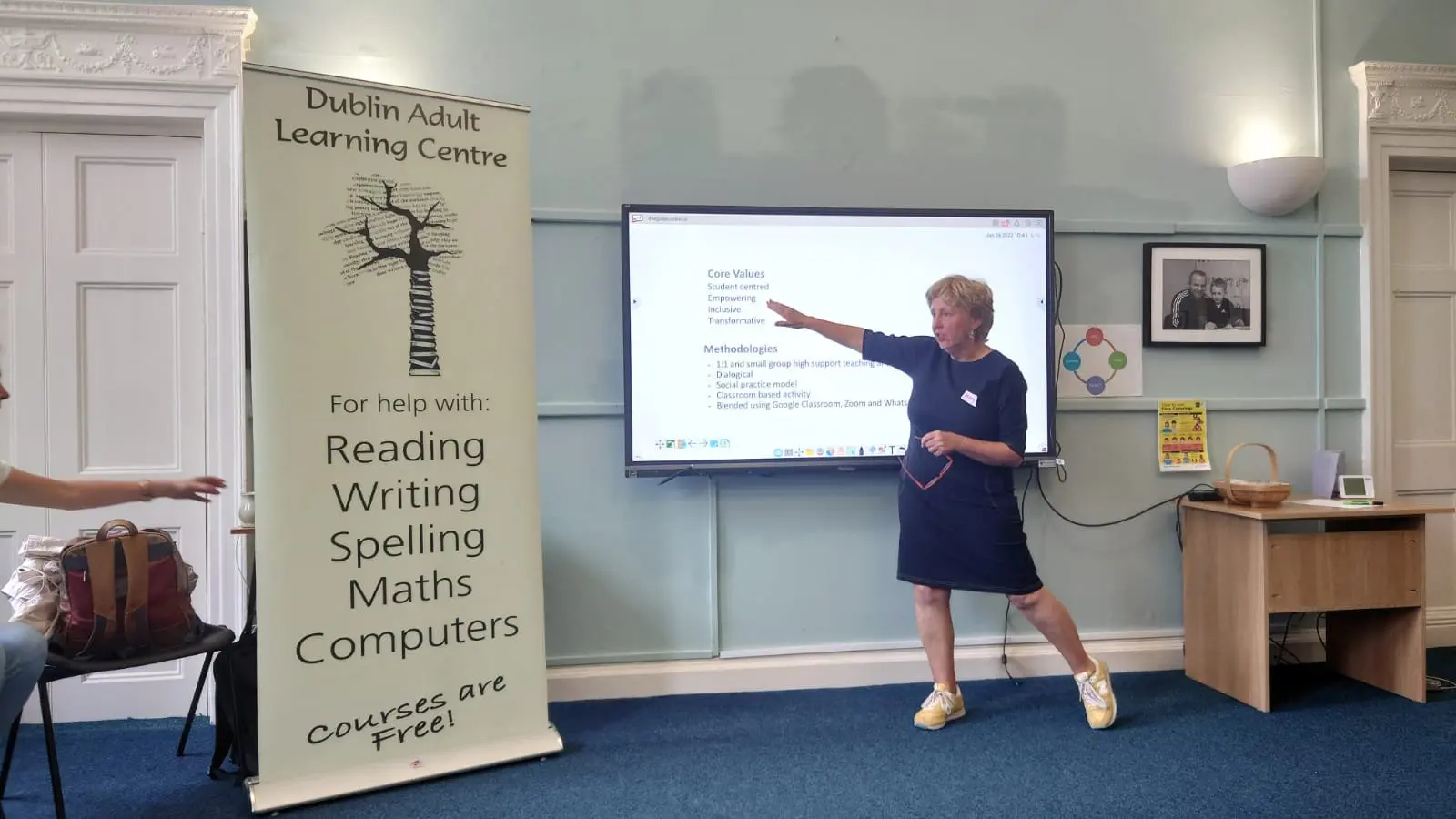 Recruiting Learners
Recruiting Learners